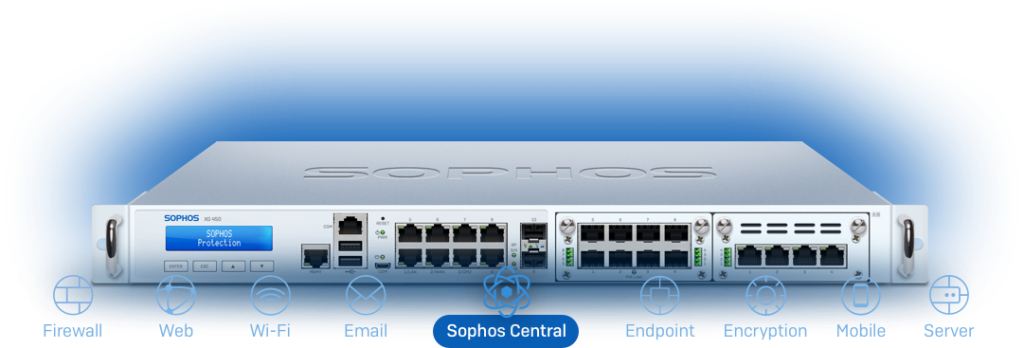In today’s digital world, cybersecurity is no longer optional — it’s essential. As businesses increasingly rely on the internet for communication, transactions, and data storage, the need to safeguard sensitive information has never been greater. One of the most effective defenses against cyber threats is the hardware firewall.
A hardware firewall acts as the first line of defense between your internal network and external threats. Unlike software firewalls, which protect individual devices, hardware firewalls secure your entire network — making them critical for businesses, schools, and organizations that depend on reliable, safe connectivity.
In this article, we’ll explore what hardware firewalls are, how they work, their benefits, and what to look for when choosing one.
What Is a Hardware Firewall?
A hardware firewall is a physical device that filters and monitors incoming and outgoing traffic between your network and the internet. It’s typically installed between your network router and your devices. Think of it as a security gatekeeper that inspects every packet of data entering or leaving your network, allowing legitimate traffic through while blocking potentially malicious activity.
These firewalls operate independently of your computers and servers, which means they don’t rely on your system’s processing power or software updates to remain effective. They’re designed for continuous, high-speed protection, ensuring that your entire network — not just a single device — remains secure.
How Hardware Firewalls Work
At the core, hardware firewalls function through a combination of packet filtering, stateful inspection, and deep packet analysis.
1. Packet Filtering
Every piece of data transferred online is broken into packets. The firewall inspects each packet and compares it to predefined rules — such as IP addresses, ports, and protocols — to determine whether it’s safe to pass through or should be blocked.
2. Stateful Inspection
This advanced method goes beyond basic filtering. Stateful inspection tracks active connections and ensures packets are part of legitimate sessions. It prevents hackers from injecting unauthorized or suspicious traffic into ongoing connections.
3. Deep Packet Inspection (DPI)
Modern hardware firewalls use DPI to analyze data packets at the application layer. This allows them to detect sophisticated attacks like malware, ransomware, and phishing attempts that might bypass simpler filters.
4. Network Address Translation (NAT)
Hardware firewalls also use NAT to hide internal IP addresses from external networks. By doing so, they make it harder for attackers to target specific devices inside your organization.
Why Businesses Need Hardware Firewalls
As cyber threats become more advanced, relying solely on antivirus software or software firewalls isn’t enough. Hardware firewalls provide enterprise-level protection that covers your entire infrastructure.
Here’s why they’re indispensable:
1. Comprehensive Network Protection
A hardware firewall protects all connected devices — desktops, laptops, printers, servers, and even IoT devices. Once configured, it automatically shields your network from unauthorized access attempts and malicious data packets.
2. Performance Efficiency
Because hardware firewalls operate independently from your computers, they don’t consume system resources. This means your devices stay fast and efficient, even when the firewall is handling large volumes of network traffic.
3. Enhanced Security for Remote Access
With more businesses adopting hybrid or remote work setups, secure remote access is crucial. Hardware firewalls often include VPN (Virtual Private Network) capabilities that encrypt data between remote employees and your network, ensuring secure communication.
4. Protection Against Modern Threats
Cyberattacks like ransomware, phishing, and denial-of-service (DDoS) attacks are increasingly sophisticated. Hardware firewalls can detect and block these threats in real time using AI-based threat intelligence and automated filtering systems.
5. Centralized Control and Monitoring
Unlike software firewalls installed on individual devices, hardware firewalls offer centralized management. IT administrators can monitor all network activity, apply policies, and update security rules across all endpoints from a single dashboard.
6. Scalability for Growing Businesses
As your organization expands, adding new users or devices is easy with a hardware firewall. Many enterprise-grade models allow for modular upgrades to accommodate higher bandwidth and increased data flow without compromising security.
Types of Hardware Firewalls
Not all firewalls are created equal. Depending on your organization’s size, infrastructure, and needs, you can choose from several types of hardware firewalls:
1. Packet-Filtering Firewalls
These are the simplest type, filtering data based on IP addresses, ports, and protocols. They’re fast and efficient but may not offer deep inspection for modern threats.
2. Stateful Inspection Firewalls
These provide more comprehensive protection by monitoring the state and context of traffic sessions, ensuring data integrity and legitimacy.
3. Next-Generation Firewalls (NGFW)
NGFWs are the most advanced form of hardware firewalls. They combine traditional protection with features like intrusion prevention systems (IPS), application control, and advanced threat detection powered by artificial intelligence.
4. Unified Threat Management (UTM) Firewalls
UTMs integrate multiple security tools into one device — including antivirus, anti-spam, content filtering, and VPN capabilities. They’re a popular choice for small and medium-sized businesses seeking all-in-one security solutions.
Key Features to Look For in a Hardware Firewall
When shopping for a hardware firewall, consider the following features to ensure your investment meets your security and performance requirements:
- High Throughput: The speed at which the firewall can process data traffic without lag.
- VPN Support: Enables secure remote access for off-site users.
- Intrusion Prevention System (IPS): Actively blocks known exploits and vulnerabilities.
- Content Filtering: Restricts access to harmful or inappropriate websites.
- Multi-WAN Support: Offers redundancy by managing multiple internet connections for failover.
- User Authentication: Ensures only authorized personnel can access the network.
- Cloud Management: Allows administrators to monitor and manage firewall settings remotely.
The Future of Hardware Firewalls
As technology evolves, hardware firewalls are becoming smarter and more adaptive. Future models are expected to incorporate:
- AI-Powered Threat Detection that learns and adapts to new attack patterns.
- Cloud-Based Security Integration for hybrid and remote networks.
- Zero Trust Architecture (ZTA) ensuring every connection — internal or external — is verified.
- 5G Compatibility to handle ultra-high-speed connectivity securely.
These innovations are reshaping how organizations safeguard their data, ensuring protection even in the face of emerging and unpredictable cyber threats.
Why Choose Tecisoft for Your Hardware Firewall Needs
When it comes to securing your network infrastructure, Tecisoft is a trusted name offering a wide range of hardware firewalls from leading global manufacturers. Whether you need a small office solution or an enterprise-grade firewall with advanced threat detection, Tecisoft provides reliable, scalable, and affordable options.
With a commitment to quality, Tecisoft helps businesses protect their networks with cutting-edge technology, expert support, and tailored recommendations to fit every budget. From deployment assistance to ongoing maintenance, their solutions ensure you get the maximum performance and protection your organization deserves.
Conclusion
In an age where cyberattacks can cripple entire organizations, investing in a robust hardware firewall is no longer optional — it’s a necessity. Hardware firewalls deliver the performance, reliability, and security needed to safeguard business data, prevent unauthorized access, and maintain compliance with data protection standards.
Whether you run a small business or manage a large enterprise network, choosing the right firewall can make the difference between vulnerability and resilience. And with a reliable partner like Tecisoft, you can rest assured that your organization’s digital defenses are strong, efficient, and ready for the challenges of tomorrow.




